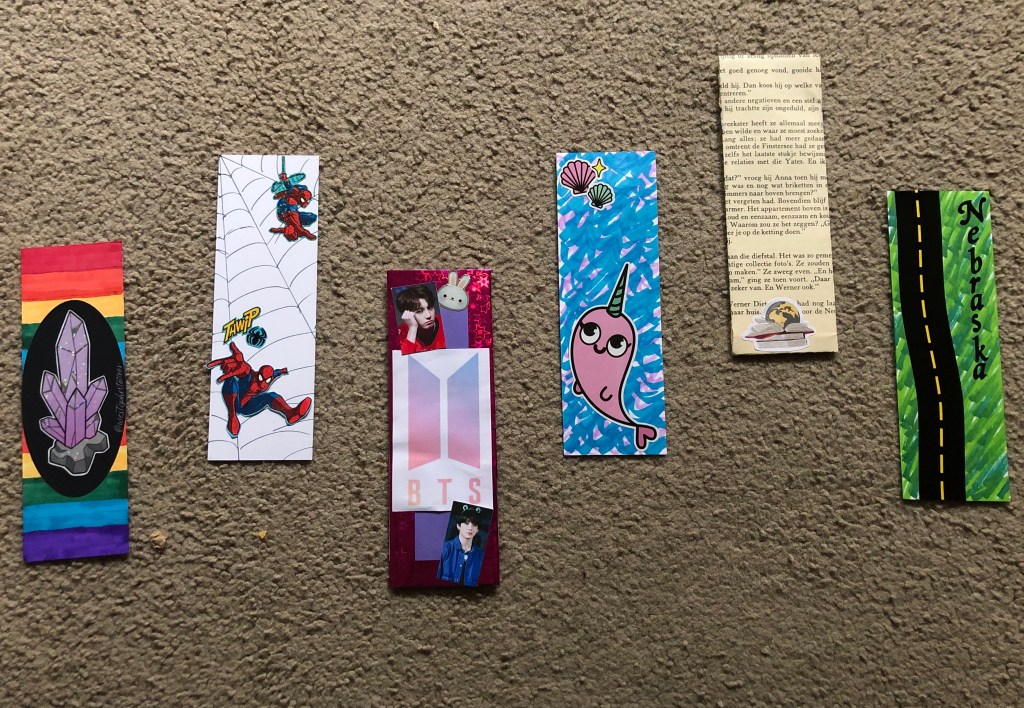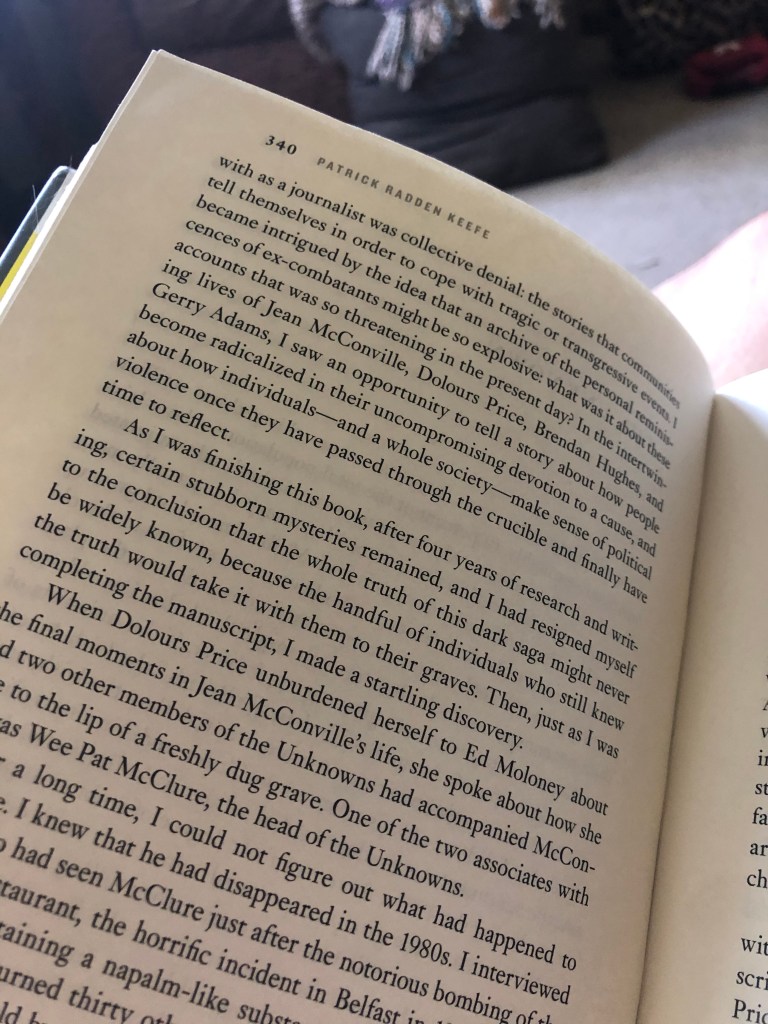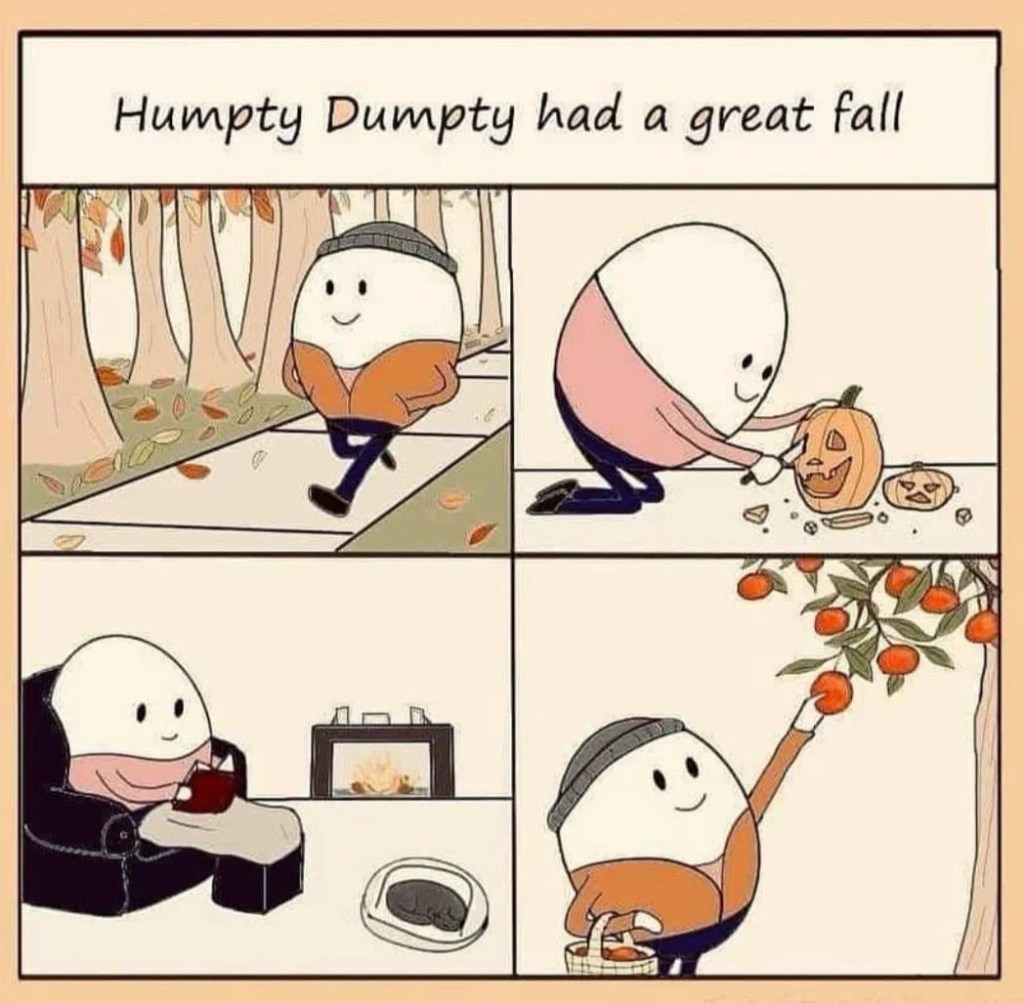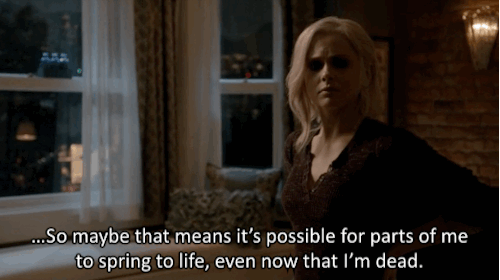What I Got:
- Oh My Goddess!: On a Wing and a Prayer by Kosuke Fujishima and translated by Alan Gleason & Toren Smith
- …and the Chinese cliffs emerged out of the mist: Perception and Image of China in Early Photographs by Filip Suchomel and Marcela Suchomelova
What I Read:
- Say Nothing: A True Story of Murder and Memory in Northern Ireland by Patrick Radden Keefe
- Frying Plantain by Zalika Reid-Benta
- A Darker Shade of Magic by VE Schwab
- Ex Libris: Confessions of a Common Reader by Anne Fadiman
As expected, this was a slow reading month, so this post won’t be a mile long for once. I had to give myself a break before my zombie-themed October TBR, especially since I felt like a zombie for a lot of September. And yes, by that I mean I wanted to eat brains. (Just kidding—I have a sinus infection.)

Unexpectedly, half of the books I read this month were nonfiction. Although, full disclosure, I did start Say Nothing in August, but we don’t need to split hairs. It doesn’t matter—I make the rules! I decide when the hairs need splitting!
Whew, the power just went to my head for a moment. Sorry. I’m back!
I’m going to write this post in the order of which books I liked least to most, because I want to end on a positive note. I want to give this curséd September the middle finger. You’re not ruining my fall reading plans! And so we start with the first of two mediocre books:
Ex Libris by Anne Fadiman
Even while including a lot of elitism and a little nonbinary erasure (both products of being written in the ’90s), these essays do make poignant efforts to describe the life of an avid, if not fanatical, reader in their own words. It’s less a book about books than a book about one person’s reading life, more in line with The Polysyllabic Spree by Nick Hornby, which inspired this blog!
Anne Fadiman’s nuclear family were all insatiable and quirky readers, to the point where it’s a little neurotic. Though I definitely relate to the part about compulsive copyediting (example: my café manager wrote out a new task sheet for each shift and I immediately found a punctuation error…), it’s more obnoxious than helpful that they mailed corrections to writers or collected them in a box over decades. I learned very quickly that correcting grammar out loud, or even in writing, doesn’t make anyone happy—unless they’ve asked for feedback—but it doesn’t seem like the Fadimans got the memo.
Even though this collection as a whole is middling, there are a few clever essays in which Fadiman uses form to make her point—like adding errors to the title of an essay about proofreading, or using footnotes to describe where a quote/idea came from in an essay about plagiarism. Man, I love a good footnote.
These essays are fun to read, but they are a product of their time and so should be approached with some caution. Everyone’s reading life is different, and it’s fun to see how books shape the people we become. Essays are the perfect vehicle for this kind of story.
Frying Plantain by Zalika Reid-Benta
Another collection, Frying Plantain follows Jamaican-Canadian Kara Davis as she grows up in the neighborhood “Little Jamaica.” She has to navigate what seem like warring identities in a warring family with different cultural expectations from all directions.
If all of the stories in this collection were like the last two, this would’ve been so good! Every story between the first story and the final two were merely okay. Reid-Benta starts off so well, with a character study full of the dark humor that can manifest from feeling real-life disconnect in a country to which you have an abstract connection. Reid-Benta gets so close to doing something awesome every time, but she doesn’t quite get there in the end.

There are moments of lyricism and emotion, but it was hard for me to be invested when the narrator is so detached from the telling of these vignettes. These should be poignant moments in her life, full of emotion and life lessons, but all sentiment seems to disappear after the first story (told from a child’s point of view, which is inherently emotional), except for a few glimmers in the final two stories (told in numbered sections, adding more umph to each scene).
If she leaves the vignettes aside, I do think that this author could write a really good YA coming of age novel. The author’s note mentions that she was working on a YA fantasy at the time this was published, which I’ll definitely look into if it comes to fruition.
Say Nothing by Patrick Radden Keefe
Say Nothing chronicles the lives of the key players in The Troubles, the violent circumstances surrounding the fight for a united Ireland. Patrick Radden Keefe adds another layer to this already complex history by framing it with the Belfast Project, which was supposed to be an anonymous oral history of both sides of the conflict, and its effect on the aftermath.
I love how this telling of the Troubles centers around the stories people tell about it, and how those stories (whether true or false or somewhere in between) can change history and the present moment. Keefe, who says in a note that he is interested in “collective denial,” makes it clear through his storytelling that how we remember something is just as important as the fact that it happened. The reporting of this story becomes part of the story itself, even influences its ending. A sort of Heisenberg Uncertainty Principle for the humanities.

With the disappearance of Jean McConville and the lives of her children afterward, Keefe constructs an entirely new context—a more domestic, “normal” one—that was affected by the Troubles. The impact is a forceful one, showing how one single event in a host of other tragedies can affect people forever, implying that the world of hurt caused by one group will continue to expand indefinitely. He also uses this tragedy to look at how people attempt to justify actions or attain accountability. The line between morality (subjective) and legality (objective, in theory) is so thin when people refuse to acknowledge that something happened or is happening, when people won’t talk about something and therefore can’t regulate what happens.
This book was chock full of information and stories, feelings and history, horrors and humanity—sometimes too much at once, but generally well-paced. Keefe tackles this history with respect and conscientiousness without sacrificing detail and accuracy. He makes compelling connections between events and discusses complex journalistic ethics in a real-world situation.
The narrative gets information heavy at times, especially in the middle, but Keefe provides the reader with great writing until the end. In fact, some of the best writing is in “A Note on the Sources.” The final paragraph in the entire book perfectly captures, in just one scene, everything Keefe tells the reader in 500 pages. That, my friends, is great writing.
A Darker Shade of Magic by VE Schwab
The Darker Shade of Magic series has been hyped up a lot, especially on booktube, and I’m happy to report that it lived up to the hype!
Kell, a rare type of magician (and black-market smuggler) who can travel between different Londons, comes across a dangerous and dark magical artifact that should not exist. He runs into wannabe pirate (and bold pickpocket) Delilah Bard who makes herself invaluable to Kell by saving his life and providing companionship on a lonely mission.
Similarly to how Keefe can capture an entire history in one scene, VE Schwab can capture an entire world in just one city. Even so, I do think it would be fun to explore beyond the Londons. Little references to how different each world is (especially the fallen Black London) left me wanting to know more.

The banter between characters sometimes feels a little canned, not quite natural, in its attempts to lighten tense moments. One thing I do like, though, is that everyone (including the villains) has their own reason for doing what they’re doing, even if they’re working together. No one is working toward the same objective, even if they’re working toward the same goal at the present moment. Often, the plot twists hinge upon exactly why one character has been acting a certain way, especially if that reason conflicts with their allies’.
Certain moments of the plot felt predictable, and the solutions at the end felt a bit too easy/convenient for me to fully believe they’re that simple. The only thing making me want to read the next books is my own curiosity—the possibility of exploring more of the Londons’ worlds, Black London coming back to haunt them in new ways, the characters doing something unexpected. Maybe VE Schwab is banking on this curiosity to build a desire to read the next books, and though it may not work for everyone, it worked for me! I do plan to pick up the next book in this trilogy, not because of the plot, but because the characters and worlds intrigue me. I want to see what they explore next and who they become.
But before that, it’s time to dig up books about the undead! (Maybe I’ll do an iZombie re-watch in October, too. What a great show.) I hope everyone has a great Spoopy Month and enjoys the beginning of fall!

